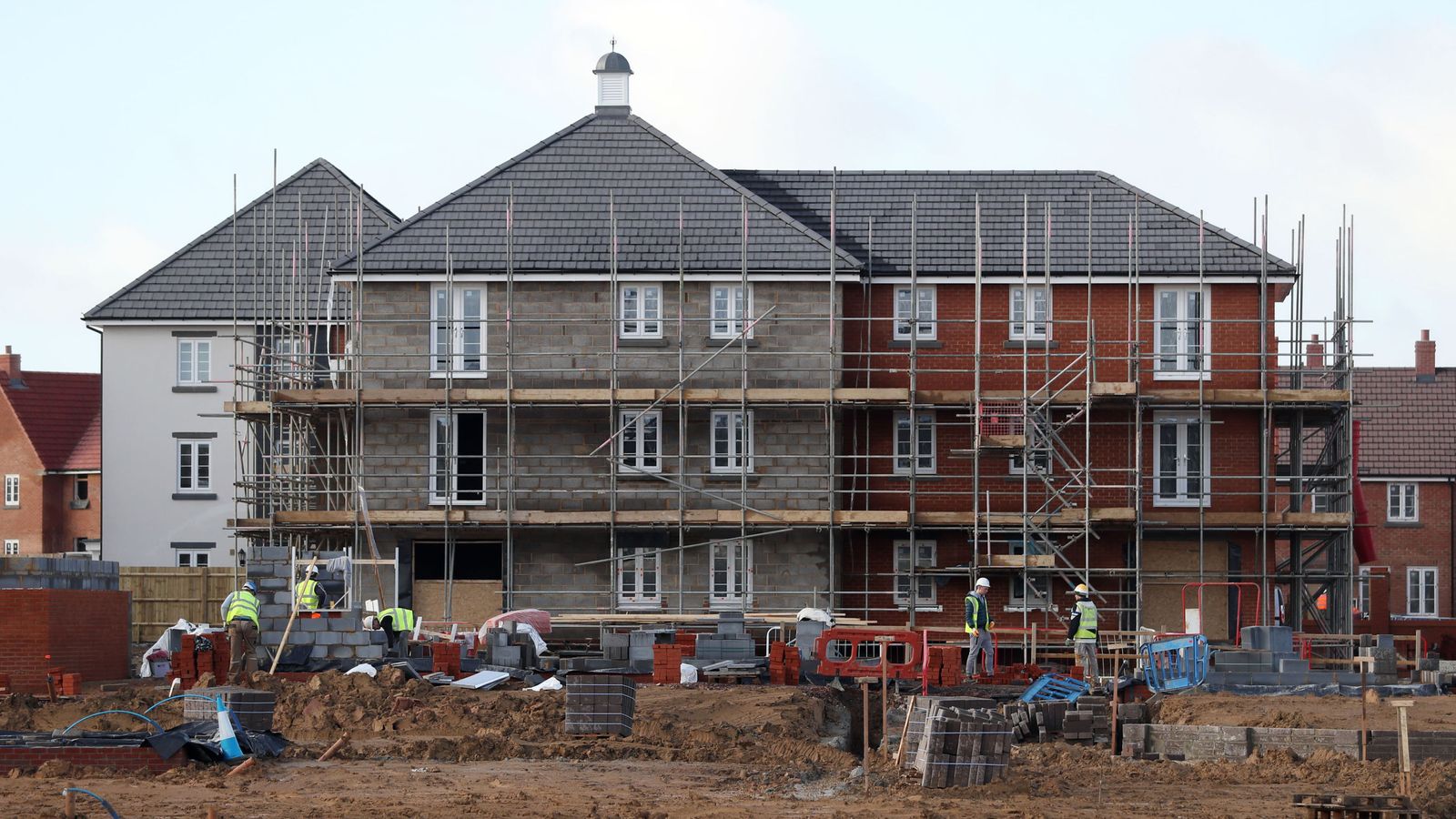The government has imposed a six-week deadline for housing developers to sign legally binding contracts that will commit them to pay to repair unsafe buildings.
And the government warns that companies that fail to sign and comply with the terms of the contract will ‘face significant consequences’.
Legislation will be brought forward in the spring giving the Secretary of State powers to prevent developers from operating freely in the housing market if they fail to sign and comply with the remediation contract. Contract will protect thousands of leaseholders.
The contract, which has been drawn up by the Department for Levelling Up, Housing and Communities, will protect thousands of leaseholders living in hundreds of buildings across England. These households would otherwise face costly repairs for serious safety defects, including non-cladding related issues.
Under the contract, developers will commit an estimated £2 billion or more for repairs to buildings they developed or refurbished over the past 30 years. This means that together with the Building Safety Levy, the housing industry is directly paying an estimated £5 billion to make their buildings safe.
Requires developers to reimburse taxpayers
The contract also requires developers to reimburse taxpayers where public money has been used to fix unsafe buildings. This follows the Secretary of State Michael Gove’s demand that developers are held to account. This led to public pledges from 49 of the country’s leading developers that they would take responsibility to fix their own buildings, which will now be turned into legally binding commitments.
Significant step towards righting the wrongs of the past
Mr Gove said: “Today marks another significant step towards righting the wrongs of the past and protecting innocent leaseholders, who are trapped in their homes and facing unfair and crippling costs. Too many developers, along with product manufacturers and freeholders, have profited from these unsafe buildings and have a moral duty to do the right thing and pay for their repair. In signing this contract, developers will be taking a big step towards restoring confidence in the sector and providing much needed certainty to all concerned. There will be nowhere to hide for those who fail to step up to their responsibilities – I will not hesitate to act and they will face significant consequences.”
Dean Finch, Group Chief Executive at Persimmon, said, “Persimmon was proud to lead the industry two years ago with our original pledge to protect leaseholders. Since then, we have been making good progress on remediation and aim to be on site on all developments by the end of the year. The publication of the developer remediation contract is the culmination of many months of hard work on all sides and we are pleased to confirm our intention to sign the final document in the near future, becoming the first developer to do so. The terms of the contract are entirely consistent with our existing commitment to protect leaseholders in multi-storey buildings we constructed from the costs of remediating cladding and life-critical fire-related safety issues. We are pleased to reaffirm this commitment today and that we were able to work constructively with the Government to secure the agreement.”
Responsible Actors Scheme
Under legislation to be brought forward this spring, a Responsible Actors Scheme (RAS) will be created. This will allow the Secretary of State to block developers who have not signed the contract or failed to comply with its terms from carrying out development and from receiving building control approval. This will prevent them from operating as normal in the housing market for as long as they do not resolve the problems of the past. The Levelling Up Secretary will also take action to ban managing agents and freeholders from taking commissions when they take out building insurance.
This is in response to a report from the Financial Conduct Authority that suggested commissions make up almost a third of premiums. The government will also bring in further measures to make service charges more transparent and empower leaseholders who want to challenge their bills.

UK government urged to address chronic undersupply of housing
The UK government is being urged to act swiftly to address the growing housing crisis in this country, as demand continues to heavily outweigh supply. Bob Seely, MP for Isle of Wight, last week called for a planning system that is community and environmentally led that supports levelling up across the country at a Westminster Hall debate, highlighting that large developers land-bank large quantities of land that go undeveloped for decades.
The consequences of this, claimed Seely, were that new housing developments were often car-dependent “in the middle of nowhere” and against the wishes of the community, arguing that this is a key reason behind how over 1.1 million homes with planning permission are still waiting to be built, as reported by the Local Government Association.
Further questions were raised by the shadow minister for housing and planning, who pointed out several potential loopholes that local authorities could take advantage of in order to build fewer homes than their communities need. In response, the minister of state for housing and planning Lucy Frazer reaffirmed the UK government’s commitment to building 300,000 new homes a year, and that the upcoming reforms to the planning system will deliver a cultural shift in the way communities actively pursue developments.
In December 2022, the Department for Levelling up Housing and Communities released a consultation on its upcoming planning reforms. Propertymark will be posting its full response soon and encourages any comment on the proposals to be sent directly to to them.
Timothy Douglas, head of policy and campaigns, said: “Propertymark has often stated that undersupply is and continues to be one of the key underlying issues facing the sector today. We therefore encourage the UK Government’s commitment to address the undersupply of housing. The historic levels of undersupply of homes, exacerbated by empty homes and unused brownfield land, all contribute to people having less choices of where they want to live. While there are several other factors impacting the number of homes that are built every year, we want to see reforms to the planning system that increase the supply homes across all tenures.”

